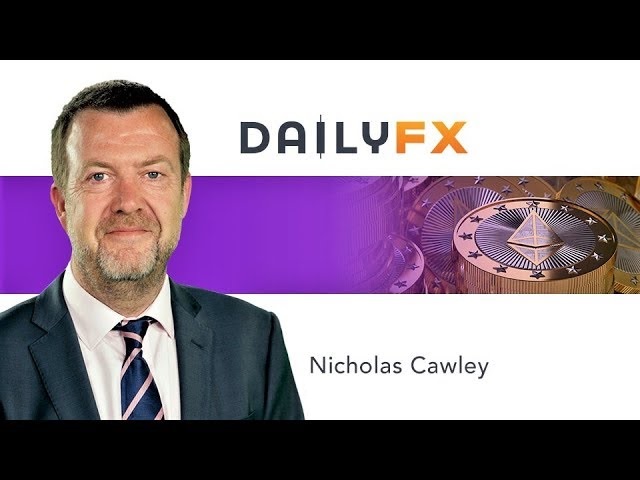The Russian-Ukraine conflict has sent the world teetering on the edge of something much bigger. The cryptocurrency space is playing a fundamental role perhaps for the first time on the world stage in the world economy on a geopolitical basis.
Our hearts are with the victims of war at this time and we continue to ensue and pray for global peace. We reached out to experts for their thoughts on its effect on cryptocurrency prices. Here is what they had to say.
Joonas Järvinen – Chief Investment Officer Coinmotion
Cryptocurrency markets reacted as negatively as expected to the first terrible news of the Russian war escalation in the early hours on Thursday 24th of February.
The market value of most cryptocurrencies plunged into double-digit numbers, followed by the global equity markets and other risky assets later in the same day.
However, after the first 24 hours of the situation’s unfolding, cryptocurrencies recovered almost fully and have been performing exceptionally strongly compared to any other traditional risky asset since (BTC 7-day return +22 %).
Nonetheless, BTC wasn’t able to break the 45kUSD resistance level, and at the same time, crypto fear and greed index is pretty neutral (39/100) after the strong recovery rally.
The high correlation observed in the January selloff between equity markets, and cryptomarkets has gradually started to diverge.
Cryptocurrencies have seen a clear boost from the uncertainty around the Ukraine war, especially among the countries where citizens have been affected hardest.
As a global macro and alternative asset class, we see bitcoin and cryptocurrencies starting to attract even more investing and savings demand, both retail and institutional, as its value propositions have become more evident as a result of recent drastic developments.
Marie Tatibouet CMO at Gate.io
When TradFi falters, crypto rises. We have seen that previously during the Covid pandemic, and we are seeing it now.
Due to the sanctions imposed by the west of Russia, the central bank was forced to increase interest rates to 20%. Also, Putin has prevented foreigners from moving their money out of the country.
Plus, Swift has also removed Russia from its network.
As you can imagine, the common folks in the country have moved to Bitcoin to conduct their transactions.
The same goes for Ukraine too.
They have gathered funds from all over the world via crypto donations to fund their war efforts.
Increasing utility and use cases have led to a price increase.
Junior Theomou Founder and CEO at Miners DeFi ($MINERS)
During the Russian-Ukrainian war, which threatens global supply chain disruption, US equities predictably plunged. Surprisingly, Bitcoin—which historically shows short-term price correlation to US equities—managed a significant price increase during a period of equities crashing.
The reason is simple: the value proposition of Bitcoin as censorship-resistant, decentralized money suddenly switched from a theoretical concern to a brutally practical necessity.
The west has fully weaponized the global monetary system to an extent that it has always hesitated to do before; it is now accepted that if a powerful government dislikes you (whether an individual, corporation, or even nation-state) for any reason, your assets will be seized instantly.
In a matter of days, every Russian citizen has been entirely banned from the global monetary system, and Russia’s foreign reserves—accumulated over decades—have been seized.
Regardless of your side in this war (and I certainly staunchly support the Ukrainians), this raises a brutally dystopian specter. $400b in wealth suddenly became worth $0, for political reasons.
BTC is backed by proof-of-work, and though it is volatile, it serves as a reliable store of value that cannot be controlled by any government.
As the public loses trust in the banking system, BTC may rally past it’s previous ATH and back towards the 100K mark in the coming months.
Miners DeFi is a collective of eco-conscious, fintech community members seeking to bring the power and the promise of a decentralized future back to the people. Miners DeFi is a utility token for the crypto community, powering the first algorithmic decentralized collective supporting hydropower-fueled and 100-percent clean energy crypto mining. Miners DeFi tokenomics are set-up to generate an immediate revenue stream for its holders, while also allowing them to be a part of a long-term project that’s paving the way for sustainable crypto mining. Miners DeFi runs on the Binance Smart Chain rewarding holders in Bitcoin and allowing them to directly benefit from Bitcoin mining.
Related: Getting Bitcoin Trading profitable for you
Jonathan Manzi CEO and Co-Founder at Beyond Protocol
The Russian-Ukraine war is a direct catalyst for cryptocurrency adoption for those affected, which translates to price increases.
Cryptocurrency like Bitcoin is decentralized, meaning no single entity or group of entities control it like a government-administered currency — during times of economic uncertainty, like war, this can provide key utilities.
Firstly, it is usable. For separate reasons, both Russians and Ukranians face day-to-day uncertainty about whether or not they can transact in local fiat.
Will sanctions make it impossible to use the ruble outside of Russia? Will Ukrainian banks stay open?
Although cryptocurrency can be regulated, due to its decentralized nature, history indicates oversight is moot — at present, it’s nearly impossible to step between peer-to-peer, cryptocurrency transactions completed off of centralized exchanges or payment processors.
Secondly, it serves as a secure store of value recognized throughout the world.
While fiat tied to countries affected by the war may suffer from extreme volatility and crashes, cryptocurrency provides for a store of value, which is universally valuable and detached from the state of affairs of any single country or group of countries.
The first order effects of the war lead to adoption of cryptocurrency for matters of practicality.
The second order effects lead to adoption due to recognition that others are finding utility and desire to invest as a result.
As a whole, the war is leading to a general recognition in the mainstream that cryptocurrency can provide innovative, new frameworks for governance and store of value which can better serve society during moments of crisis — and they may help prevent them to begin with.
Jonathan Manzi Bio:
Jonathan Manzi is the CEO and co-founder of Beyond Protocol, the company developing a new internet based on a universal platform that enables inter-devices communication. He is considered a global expert in frontier technology, specializing in building multiple successful businesses in divergent industries. Prior to Beyond, Manzi left Stanford University where he presided as the Chair of Entrepreneurship and co-founded a non-profit for youth entrepreneurship, to co-found and serve as CEO of ink.
Don Kaufman Chief Market Strategist at TheoTrade
Heavy sanctions on Russia sparked a bullish burst in Bitcoin (BTC) Monday but don’t expect it to last.
If Russia tries to bypass sanctions with crypto the regulators will step in and we’ll see heightened volatility and a fight over crypto the likes of which we haven’t experienced.
There’s a dramatic downside risk to crypto and the entire global markets because of the war in Ukraine.
There was a tremendous flight to bonds earlier in the week with a 3-point rise. We remain bearish on Bitcoin in the near term.
Eric Chen CEO and Co-founder of Injective Labs Core Contributor Behind the Decentralized exchange Protocol Injective
-
I think there will certainly be renewed volatility in the crypto markets since this is of course groundbreaking news so many individuals might react in an unpredictable manner. However, in the long run the fundamentals still remain and crypto markets will continue to grow.
-
I do not think anything has fundamentally changed in the crypto market. I do expect fundamentally stronger adoption but the macro environment still has pressures from the Fed and rising inflation. It will be interesting to see how the war plays out. A part of me believes that the impact on the market will be temporal in nature but of course if the conflict propagates and involve more countries we could see significantly more volatility.
Jonathan Teplitsky CEO Pipeline Marketing
Founder at Pipe Flare NFT Platform and Manager of Community Growth at Horizen
We’ve been hearing a lot about Russia using ‘cryptocurrency’ to skirt the economic sanctions recently imposed on Moscow.
But all major cryptocurrencies are open ledgers; hence, all transactions are open to the public.
If Russia is moving huge sums of cash in the form of cryptocurrency, onlookers will notice it on the blockchain. Governments already have very sophisticated methods in place for tracking blockchain transactions.
While no one can stop Russia from using cryptocurrency, we can see how much they are sending and to whom they are sending it.
Effectively, the recipient of any cryptocurrency transaction would be subject to the same repercussions as any bank transacting with Russia.
So, in summary, Russia would have a hard time using cryptocurrency to circumvent sanctions.
If Russia conducts all sanctioned transactions on a blockchain, worth billions of dollars daily, the price of whatever token they are using will surely skyrocket.
Such large transactions could also slow down networks and drive up gas fees for the rest of the world.
However, with cryptocurrencies living on open ledgers, I do not think this is a reasonable or feasible approach for Russia.
Imge Su Cetin Founder and CEO at DefyTrends
We are devastated by the news out of Ukraine, and our thoughts go out to all involved and we hope that a ceasefire will be arranged as soon as possible.
The Russian invasion has led to a variety of changes in the global economy: a stronger dollar, a weaker ruble and Russian stock market, and greater volatility and uncertainty about where the world is headed.
Most significantly, the United States and its allies in Europe and Asia have taken unprecedented steps to exclude Russia from the global financial system as part of their sanctions against the Russian government.
Russia’s recent announcement that they will be issuing their own stablecoin represents an acceleration of existing trends in which digital assets and cryptocurrencies are coming to compete with fiat currencies, and Russia’s announcement is part of their challenge to a global economy in which the US Dollar is king.
BTC’s short-term drop on February 24 had more to do with the significance of the invasion news and the volatility of BTC relative to equities markets (which also dropped on the news) than with any fundamental change to the macroeconomic forces that are shaping BTC’s price trajectory in the long-term.
BTC’s price is over the level it was a week ago and the reversion to the norm following February 24 is demonstrated by the BTC price chart over the last two weeks of February.
Retail and institutional investors will continue to invest in and adopt cryptocurrencies and other digital assets, and we see that as the major force driving up crypto prices and establishing digital assets as a long-term force on the financial landscape.
We see the Russian invasion as one of the most important global macro events since the start of the COVID-19 pandemic, but we are confident that the continued growth of cryptocurrency use and digital asset ownership will continue unabated despite the war.
Related: Top Seven Reasons Why Bitcoin is Popular Today
Nicholas Cawley Strategist at DailyFX
The Russia-Ukraine crisis is affecting all risk markets at the moment, not just Bitcoin.
The news flow from the region is seemingly biased from both sides while the constant swings in good news/bad news make it difficult to value and trade the market at the current time.
Until this changes it is difficult to see any reason to trade Bitcoin from either the long or the short side.
The late-Thursday sharp rally in Bitcoin has continued today, setting up the market leader for a fresh attempt at a resistance zone around $2k higher up.
The small risk-on move yesterday, initially prompted by news of peace talks between Russia and Ukraine, has also found support from talk that the decentralized currency is being bought by parties in both countries.
Natalia Zakharova Global Head of Sales at FXOpen
Outbreaks of political tensions, including those which result in the unfortunate onset of war, have always been catalysts for extreme volatility and uncertainty in global financial markets.
In recent years, after the development of the modern economy, it has been often a case of watching stocks and currencies in stricken areas decline, and stocks and currencies in safe havens or areas that produce military equipment or have a stronger army to defend against the spread of war increase.
These are simple cases of confidence vs lack of confidence in specific economies due to what their position is in either handling or fending off any part in a war.
The current war that is taking place is quite different, because for the first time in recent history, entire continents, those being all of North America and most of Europe, are imposing trade sanctions on Russian individuals, companies and products to an extremely high level.
This has made it very difficult for holders of the ruble, and therefore it would make sense if many people who have not been able to invest their money in Euro or US Dollars outside of Russia would attempt to circumvent the unstable Russian financial system by holding cryptocurrency, or settling international remittances by using cryptocurrency given that there are now very limited methods of getting Rubles into other nations, and the SWIFT system has been blocked for Russian financial institutions meaning that people cannot transfer rubles to banks in other nations.
It is possible that Bitcoin may have increased in value more than it is already doing had the Russian government proceeded with its plans to allow it to be recognised as a legal tender and method of payment in Russia.
This had been recommended by the Russian central bank, the idea being that by recognising Bitcoin as a method of payment, it would bring it out of the shadows and prevent an illegitimate market.
However, just before the war began, this proposal was stopped by the Russian ministry of finance, therefore the existing legalities remain, in that Bitcoin is not really allowed within Russia.
Those who use it, which is a fair amount of people, are likely to continue to do so as belief in the value of the ruble is once again very low. Russian citizens are used to the ruble being an inflationary currency therefore often look for other methods of payment or stores of value.
Two days ago, there were calls for bans on crypto exchanges accepting Russian transactions, but that is very ineffective.
The whole idea of Bitcoin is that it is decentralised and empowers its users as a ‘peer to peer’ currency and avoids any coercive tactics by governments or central banks.
Therefore it will be very difficult for anyone to stop any such transactions from taking place given that Bitcoin has no borders, no central issuer and can be hosted at any wallet address by anyone globally.
As it stands, there is likely to be more solidity in the values of Bitcoin than the difference between majors and the ruble.
Related:Editorial: The Crypto Maze-Cryptocurrency Adoption and Regulation are Coming
About FXOpen:
FXOpen is a global forex and CFD broker, founded in 2005 by a group of traders determined to make trading easy, secure and accessible to all. Now a highly established ECN broker, offering Crypto, ECN, STP and Micro trading accounts (dependent on jurisdiction), the company has a network of worldwide offices with brokerages in London, Cyprus and Australia, regulated by the FCA, CySEC and ASIC respectively.
Fran Strajnar Co-founder of Brave New Coin
As predicted in 2015, it was inevitable for Bitcoin to enter the Geopolitical Theater.
Since El Salvador made bitcoin legal tender, we have seen other nations and states signal they will do the same, while on the other side of the fence, we have seen coordinated statements from the ECB, BIS, World Bank etc pleading more countries not to go down this route.
Ukraine and the greater context of a global reshuffling from a Uni-Polar to a Multi-Polar world order, is the background to which we are witnessing this battle between centralized vs decentralized money systems.
With bitcoin now a National Security consideration we expect significant volatility as bitcoin moves to finally decouple from legacy markets.
This decoupling process has already started and will become abundantly clear over the course of this year.
Anndy Lian Founding Partner of Influxo
Ukraine is collecting crypto for donations and selling them for fiat.
While Russia’s wealthy are worried about buying crypto (including NFT) to preserve their wealth as they see that Russia is starting to be boycotted in various places.
Justin Giudici Head of Product at The Telos Foundation
This created a healthy buy and sell flow in the now bearish crypto market.
In the short term, we can see small pikes in the market driven by news. In the longer term, there could be a dramatic shift in crypto power houses.
With increased sanctions on Russia and a falling Ruble, we are seeing Russians looking to move capital away from the unsettled Ruble and into Bitcoin and other crypto assets.
Oligarchs in particular are needing to not only protect themselves from Ruble volatility but also using it to move US capital before it is frozen.
For now, there are still many exchanges, including Kraken, Binance and Gemini that are not stopping Russians from using their exchange.
On the other side, we are seeing cryptocurrency gaining higher usage in Ukraine – with charities and even the Ukrainian government using it as a way to accept donations globally.
Joe Burnett Analyst at Blockware Solutions
It is difficult to determine exactly what effect specific events have on the market price of Bitcoin.
There are an infinite number of market-related variables constantly changing around the world.
Billions of people are experiencing these changes and events which cause each of them to buy, sell, or do nothing based on their own unique perspective.
With that said, the Russsian-Ukraine war has clearly highlighted Bitcoin’s censorship-resistant properties.
For both countries, good or bad, capital can be moved and allocated to and from Bitcoin without any government, bank, or world power being able to intervene.
What is real estate in Ukraine now worth? What are Russian bonds now worth with new economic sanctions?
The world is learning that the Bitcoin network itself is outside the control of any nation-state, and it paints a clear picture as to why capital is flowing into BTC.






















